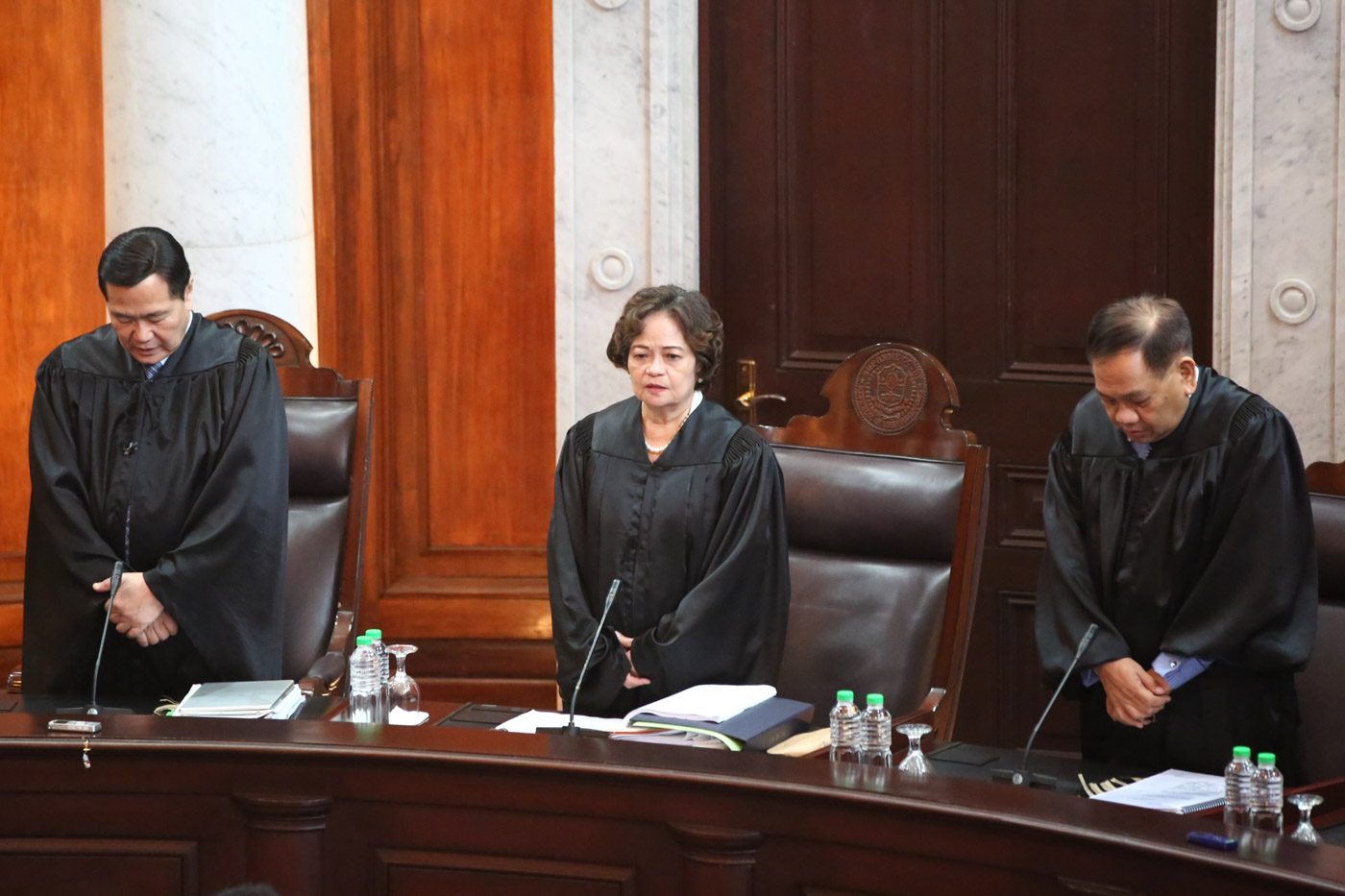SUMMARY
This is AI generated summarization, which may have errors. For context, always refer to the full article.

MANILA, Philippines – Chief Justice Teresita Leonardo de Castro said on Tuesday, September 4, that no local law was passed to put the Rome Statute into a full effect.
De Castro said this during the 2nd day of oral arguments in the Supreme Court on petitions questioning the validity of President Rodrigo Duterte’s unilateral withdrawal from the International Criminal Court (ICC). The Rome Statute – which the Philippines ratified in 2011 – created the ICC.
Duterte said the Rome Statute was never valid, citing many grounds.
De Castro appeared to have added one more.
“It would seem there are provisions in the Rome Statute which will require domestic legislation to put them into effect. As of now, I think it is conceded that we do not have any implementing legislation yet,” said De Castro.
De Castro added: “So the question is whether or not the Rome Statute is already in force and in effect as of this time, and what will be the consequence of this to the power of the President to withdraw from the Rome Statute?”
Lawyer Barry Gutierrez, representing the opposition senators, said that the Rome Statute does not require an implementing domestic law to be considered binding and in effect. Gutierrez insisted that it only needed the concurrence of two-thirds of the members of the Senate, after which it transformed into a local law itself.
“And in fact, we believe that the fact that Congress…has enacted the appropriations that would offset our financial obligations is indicative that Congress itself recognizes that the Rome Statute is in full force and effect here without need for an implementing legislation,” Gutierrez said. (READ: What’s the relevance of the International Criminal Court to Filipinos?)
International Humanitarian Law
In its petition, the Philippine Coalition for the ICC or PCICC noted that Republic Act 9851 or the International Humanitarian Law (IHL) penalized the crimes covered in Articles 5, 668, 769, and 870 of the Rome Statute like genocide, crimes against humanity, and war crimes.
So is the IHL the local law that De Castro said is required? No, said the Chief Justice, because the IHL was passed in 2009, before the Rome Statute was ratified in 2011. An implementing legislation should come after the treaty, and not before, said De Castro.
“The IHL was passed before we acceded to the Rome Statute, so the status as of now is we do not have any domestic legislation implementing the Rome Statute,” said De Castro.
De Castro told the petitioners to answer the issue in their memoranda. The next hearing is on September 18, where Solicitor General Jose Calida is set to present Malacañang’s side. – Rappler.com
READ related stories:
- Carpio: Duterte cannot withdraw from ICC by himself
- ICC pullout: Are there limits to Duterte’s presidential discretion
- What the ICC pullout case means for Duterte and the Supreme Court
- PH staying in International Criminal Court ‘insurance’ vs impunity
- International Criminal Court issue will mark Duterte presidency
Add a comment
How does this make you feel?
There are no comments yet. Add your comment to start the conversation.